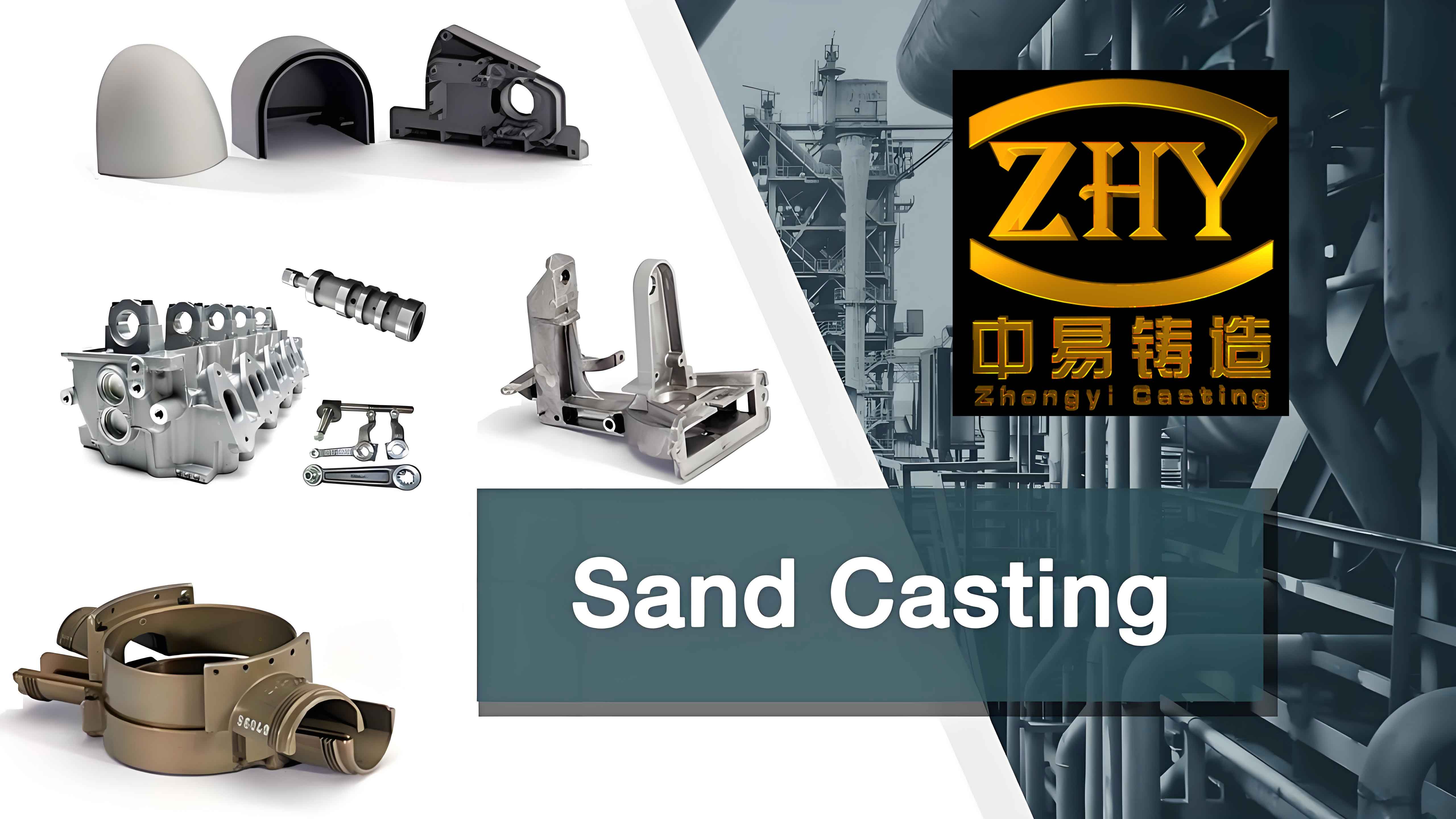In modern foundry practices, furan resin sand casting has become a cornerstone for producing high-integrity sand casting parts due to its superior dimensional accuracy, low scrap rates, and economic efficiency. This paper systematically examines critical process parameters and proposes technical improvements to address common defects in sand casting parts manufactured through furan resin sand molding.

1. Strength Optimization Through Material Composition Control
The mechanical strength of sand casting parts directly correlates with resin content and silica sand gradation. Our experimental data reveals three fundamental relationships:
| Resin Content (%) | 24h Tensile Strength (MPa) | Gas Evolution (mL/g) |
|---|---|---|
| 0.8 | 2.8 ± 0.3 | 12.5 |
| 1.0 | 3.5 ± 0.2 | 15.8 |
| 1.2 | 4.1 ± 0.4 | 19.2 |
| 1.5 | 4.3 ± 0.3 | 23.6 |
The optimal resin content range for sand casting parts can be determined through the strength-gas evolution balance equation:
$$ \eta = \frac{S}{G^{1.2}} $$
Where η represents process efficiency, S denotes tensile strength (MPa), and G indicates gas evolution (mL/g). Maximum η values occur at 1.0-1.2% resin content.
2. Silica Sand Gradation Optimization
Grain size distribution significantly impacts the permeability and surface finish of sand casting parts. The ideal gradation follows:
$$ U = \frac{D_{60}}{D_{10}} \leq 1.5 $$
Where U is uniformity coefficient, D60 and D10 represent sieve sizes passing 60% and 10% of sand respectively. Our recommended gradation for sand casting parts:
| Sieve Mesh | 40 | 50 | 70 | 100 | Pan |
|---|---|---|---|---|---|
| Retention (%) | 10-15 | 35-45 | 30-40 | 5-10 | ≤2 |
3. Process Parameter Optimization
Critical parameters for manufacturing consistent sand casting parts include:
3.1 Curing Dynamics
The curing process follows Arrhenius-type kinetics:
$$ t_c = A \cdot e^{\frac{E_a}{RT}} $$
Where tc = curing time (min), A = pre-exponential factor (2.4 × 108), Ea = activation energy (85 kJ/mol), R = gas constant, T = absolute temperature (K).
3.2 Sand-Metal Ratio Control
Optimal sand-metal ratio (S/M) for sand casting parts:
$$ S/M = 5.2 – 0.33 \cdot \ln(V_c) $$
Where Vc is casting volume (dm³). Practical implementation guidelines:
| Casting Weight (kg) | S/M Ratio | LOI (%) |
|---|---|---|
| ≤50 | 4.8-5.2 | 3.2-3.8 |
| 50-200 | 5.0-5.5 | 3.5-4.0 |
| ≥200 | 5.3-6.0 | 3.8-4.5 |
4. Permeability Enhancement Strategies
Gas permeability (GP) in sand casting parts molds follows:
$$ GP = 1850 \cdot \left(\frac{\varepsilon^3}{(1-\varepsilon)^2}\right) \cdot \frac{1}{d_{avg}^2} $$
Where ε = porosity (0.28-0.32), davg = average grain size (mm). Practical compaction control:
| Compaction Energy (J/cm³) | Permeability | Surface Roughness (μm) |
|---|---|---|
| 0.8 | 142 | Ra 25 |
| 1.2 | 118 | Ra 18 |
| 1.6 | 95 | Ra 12 |
5. Operational Windows for Process Stability
Key temporal parameters for sand casting parts production:
$$ t_w = \frac{t_g}{2.5} \leq t_p \leq 1.8 \cdot t_g $$
Where tw = workable time (min), tg = gelation time (min), tp = pattern removal time (min). Recommended parameter combinations:
| Resin Type | tg (min) | tp (min) | Strip Force (kPa) |
|---|---|---|---|
| Low-N | 12-18 | 20-30 | 0.8-1.2 |
| Standard | 8-14 | 15-25 | 1.0-1.5 |
| Fast-Cure | 5-10 | 10-18 | 1.2-1.8 |
6. Quality Assurance Framework
Implement statistical process control for sand casting parts production:
$$ C_{pk} = \min\left(\frac{USL – \mu}{3\sigma}, \frac{\mu – LSL}{3\sigma}\right) \geq 1.33 $$
Critical quality parameters for sand casting parts:
| Parameter | USL | LSL | σ |
|---|---|---|---|
| Dimensional Tolerance (mm) | +0.5 | -0.3 | 0.08 |
| Surface Porosity (pores/cm²) | 3 | 0 | 0.5 |
| Hardness (HB) | 220 | 180 | 8 |
This comprehensive approach to optimizing furan resin sand casting processes enables manufacturers to consistently produce high-quality sand casting parts with improved mechanical properties, dimensional accuracy, and surface finish while maintaining cost efficiency. The integration of material science principles with statistical process control creates a robust framework for sand casting parts production in demanding industrial applications.
